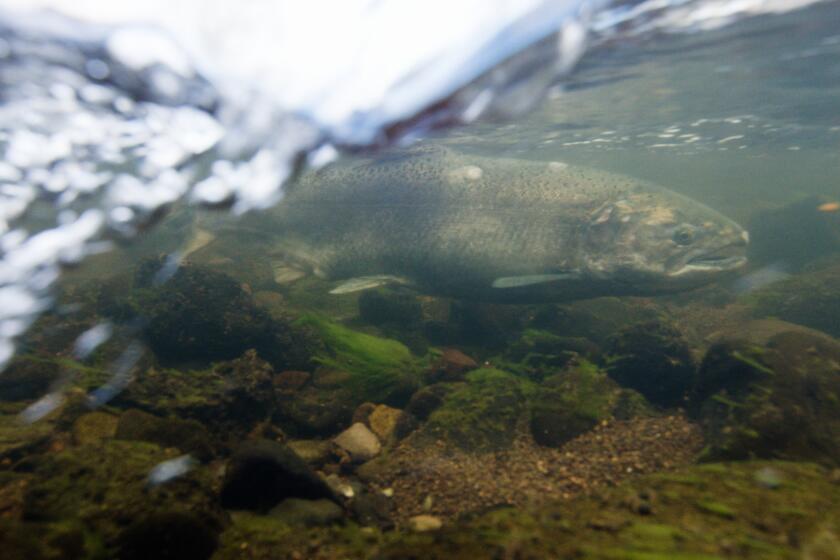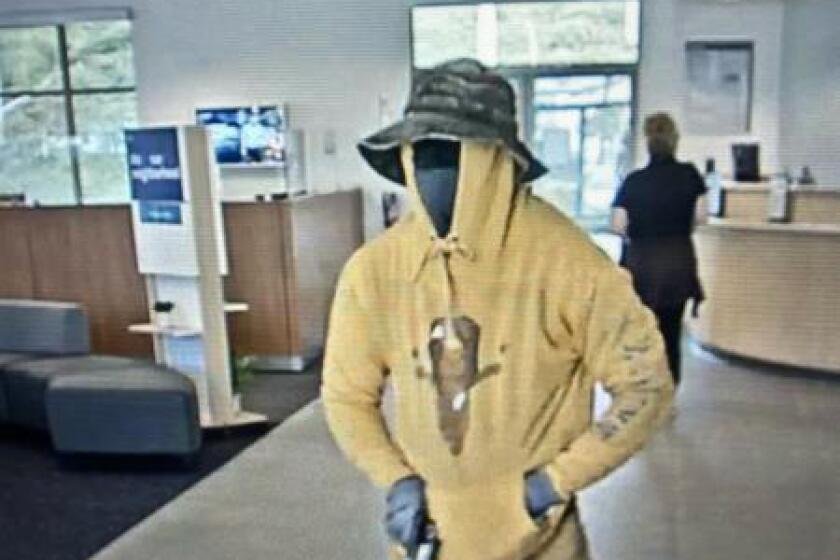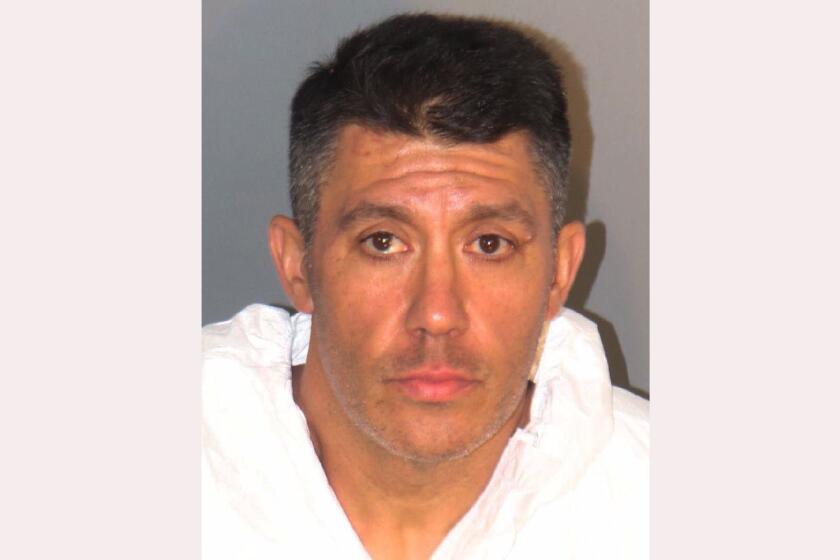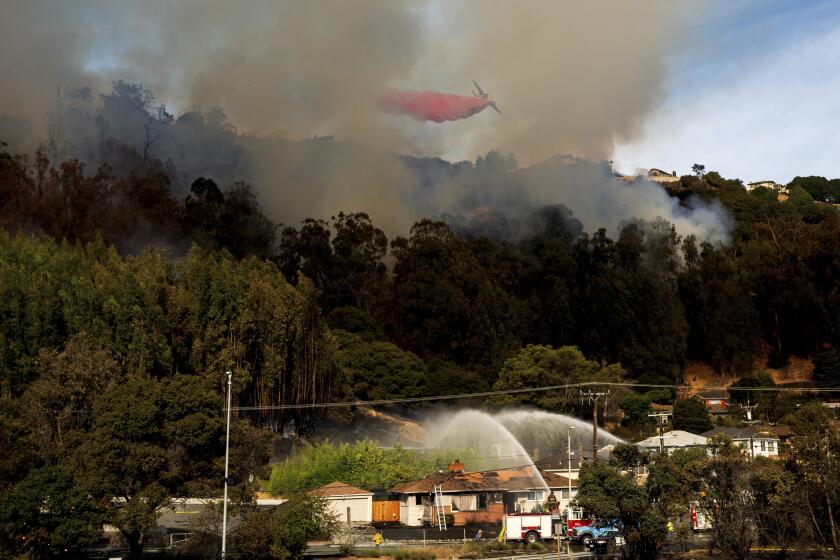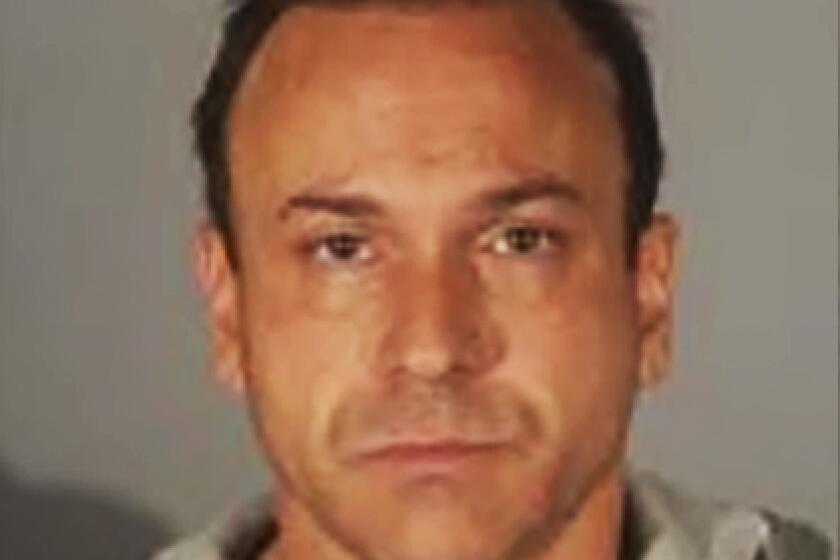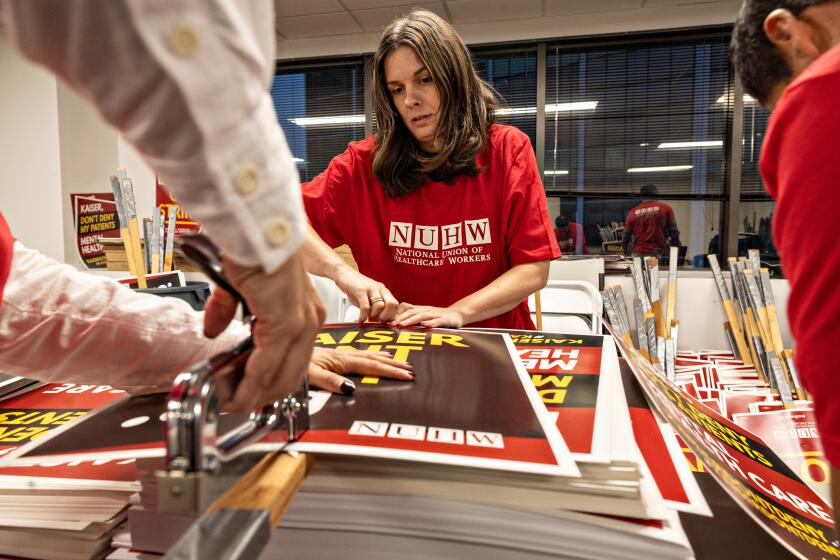Rancho P.V. in for Taxing Sales Job
When the Rancho Palos Verdes City Council recently debated whether to hold a local tax election, one resident got up and said, “I’d favor a tax if I understood the need. But up to this point, I don’t understand the need.”
The council subsequently decided on an election--in June, 1988--and now faces the task of convincing affluent voters suspicious of taxes that the money is needed.
“It’s an uphill battle,” conceded city Finance Director Kevin N. Smith, who said the message the city has to get out is that the money would be used strictly for street and road maintenance, the so-called infrastructure.
“We can document the need and show what is not getting done because there is no money for it,” he said.
Public works Director George Wentz has reported that the city needs $17 million in additional money over a five-year period to keep roads from deteriorating. The new tax would be designed to bring in $3.4 million a year. The current capital improvement budget is $7.4 million, but $2 million of that is a carry-over from last year. The rest of the city’s budget is $9.1 million.
Council to Choose Type of Tax
Although the election date has been set, the specific tax proposal has not. The city is likely to choose either a parcel tax or to increase the utility-users tax imposed a year ago. That will be decided by the council within two months, Smith said.
Officials say the city has to handle the tax issue as it would a political campaign, working with homeowner associations, holding community forums and using the city newsletter and the local cable television channel.
“I have people say to me, ‘Cut out a section of the road and show me it’s bad,’ ” said Councilman John McTaggart. “I will if I have to.”
An election is mandated by Proposition 62, passed last November by 58% of the state’s voters. It requires a majority popular vote on new or increased general taxes, including utility-users taxes. The council, after some acrimonious sessions a year ago, approved a 5% utility tax a year ago that is expected to bring in $1.6 million this year. But it will die if not approved by the electorate before November, 1988.
The utility tax goes into the capital improvements budget, which also is funded through federal, county and state road funds.
Some Roads in Bad Shape
According to the Public Works Department, some major streets, including Palos Verdes Drive South, need extensive work. Many residential streets built in the 1950s and 1960s are being maintained through patching and slurry, a tar-like substance that fills smaller cracks and seals the streets, but some need to be rebuilt.
Slurry costs 10 cents a square foot, but patching or rebuilding add $2 to $3 to the bill. Wentz said that delaying work makes it more expensive in the future, citing one road that was budgeted for $300,000 for repaving. The work was put off for three years and, by then, it had failed to such an extent that it required a $700,000 reconstruction.
A financial advisory committee, made up of 11 residents appointed by the council, has recommended that voters be asked to approve a utility-users tax of up to 9%. Among other things, the committee said the tax already is in place and stands a better chance of being approved than a new kind of tax, and it can be quickly adjusted as needs change.
Tax on Land Considered
The committee also raised the possibility of a secondary tax or fee on undeveloped land whose owners do not pay the utility tax, but Smith said there are legal questions the city attorney is researching.
“We don’t know if you can specifically pick out a particular type of property and say that this qualifies for a tax and this one doesn’t,” he said.
In general, the committee said, a parcel tax on property would go against the grain of people who said they did not want more property taxes when they voted for Proposition 13 nearly a decade ago.
At this point, the council appears to be united on the need for money.
“We can’t run the city on a shoestring because we’ll end up tripping,” said Councilman Robert Ryan--who is undecided about how to get revenue.
Parcel Tax Advocated
Ryan said he is convinced that a parcel tax, levying a specific amount of money on homes, condominiums, apartment units and undeveloped acreage, is the way to go.
Councilwoman Jacki Bacharach said she has not made up her mind, but added, “I tend to feel a parcel tax is more traditional and understandable to people.”
McTaggart is opting for a “split tax” incorporating a parcel and utility-users tax at reduced rates “so the burden would not be too great on anyone.” But unlike his colleagues, McTaggart said the ballot should contain a box for no tax at all.
“The public wants to have a choice,” he said. “If they don’t want the roads fixed, they won’t get fixed. It should not be held over their heads that the roads will go to hell if they don’t vote for it.”
Utility-Users Tax Assailed
Ryan contends that a utility-users tax will fail because people “see it four or five” times a month on their various utility bills and it is not related to anything but the amount of electricity or gas a person uses. “If you have several kids who turn the TV on all night and bake a lot of cookies, is that a reason to pay more tax?” he asked.
On the other hand, he said a yearly parcel tax would be deductible on federal tax returns and have uniform rates for everyone. “When you have a $300,000 home, it’s worth $150 a year” to ensure that the city continues its reputation for first-class services.
But Bob McNulty, a member of the tax committee who also serves on the city Planning Commission, disagrees. “Proposition 13 was the citizens saying leave my property alone,” he said.
Despite an outcry against the utility tax when it was passed, McNulty said, experience has shown that most people never know they are paying a tax to the city and the tax has generated few complaints. Even though passing any tax on the ballot will be difficult, he said, a 9% utility tax will appear more palatable because such a tax already is being collected and homeowners and renters alike pay it.
Several Roadblocks Ahead
Officials concede that they face several roadblocks, including a general suspicion of taxes--demonstrated a decade ago when residents strongly supported Proposition 13--and a perception that Rancho Palos Verdes is a wealthy city because its 45,982 residents live on high incomes.
“There are not a lot of good things you can say about taxes,” Ryan said. “Everyone hates them.”
McTaggart said he knows the mood of Rancho Palos Verdes, saying that before Proposition 13, the city was repeatedly reassessed and its tax rate was “grossly unfair.” He said people “still have concerns and reservations about appropriating taxes and getting back into a situation where they are out of control.”
He said that is why he wants the tax measure to have a sunset clause, so that the tax would die if not approved again by voters.
Hard to Sell
Bacharach said that the reason the money is needed, keeping up streets and roads, makes it hard to sell. “We are not talking about police and fire, which are emotional services,” she said. “People usually respond to crises.”
On the issue of community wealth, residents are financially comfortable, with a median family income of $63,588. But Smith said the city is not so well off, because of low property taxes and limited income-producing commercial zoning.
Ryan, who has been in office since incorporation, said the city initially thought low taxes were a good idea. But Proposition 13 created a formula that allocated shares of the county’s 1% based on what cities had been collecting before. “Cities with low taxes were penalized,” Ryan said.
City Gets Little in Property Tax
Smith said that out of every $1,000 that Rancho Palos Verdes residents pay in property taxes, the city sees only $20.70. This year’s total tax is estimated at $444,000.
In addition to the $7.4 million capital improvement budget, the city this year has a $9.1 million operating budget. The largest revenue category is $2.1 million in fees that come largely out of state motor vehicle money. Other sources include cigarette and business taxes, about $300,000; fees charged for city services and concessions, about $1.7 million; and sales taxes, about $852,000.
Most of that comes from the city’s commercial zoning along Western Avenue, which was not annexed until 1983, Smith said.
Several officials said they don’t believe residents really understand the revenue situation, Ryan saying, “Most people would fall over in a dead faint if they knew how much property tax we get.”
He and other officials said there is little the city can do to generate additional income, except through fees for services--recreation fees pay for programs and offset the costs of parks--or going to voters for additional taxes.
‘A Poor City’
Said Bacharach, “One of the things we have to sell is that city finances have nothing to do with personal finances. The fact that we are a bedroom community makes us a poor city.”
But officials believe they can mount a convincing case, pointing to neighboring Palos Verdes Estates, where voters have given wide margins of approval for two parcel taxes enacted to provide money for police and paramedic services and maintenance of parks and streets.
Franklyn Weiss, a patent attorney who is a member of the citizens tax committee, said the committee concluded that the city budget is “as tight as it could be” and more money is needed for basic public works maintenance.
“It will take a very well-managed campaign and it will take education of the citizens of Rancho Palos Verdes who, when educated, will come to believe there is a need for this tax,” he said.
Election Date Debated
Ryan argues that the finance committee and the council erred in scheduling the election for next June’s presidential primary where, he said, the tax issue will “get lost in the welter of mailings that will come out.” He said the measure should have been put on the November election ballot for council, adding, “Council elections are where people who know and care about the city come out and vote.”
More to Read
Sign up for Essential California
The most important California stories and recommendations in your inbox every morning.
You may occasionally receive promotional content from the Los Angeles Times.




